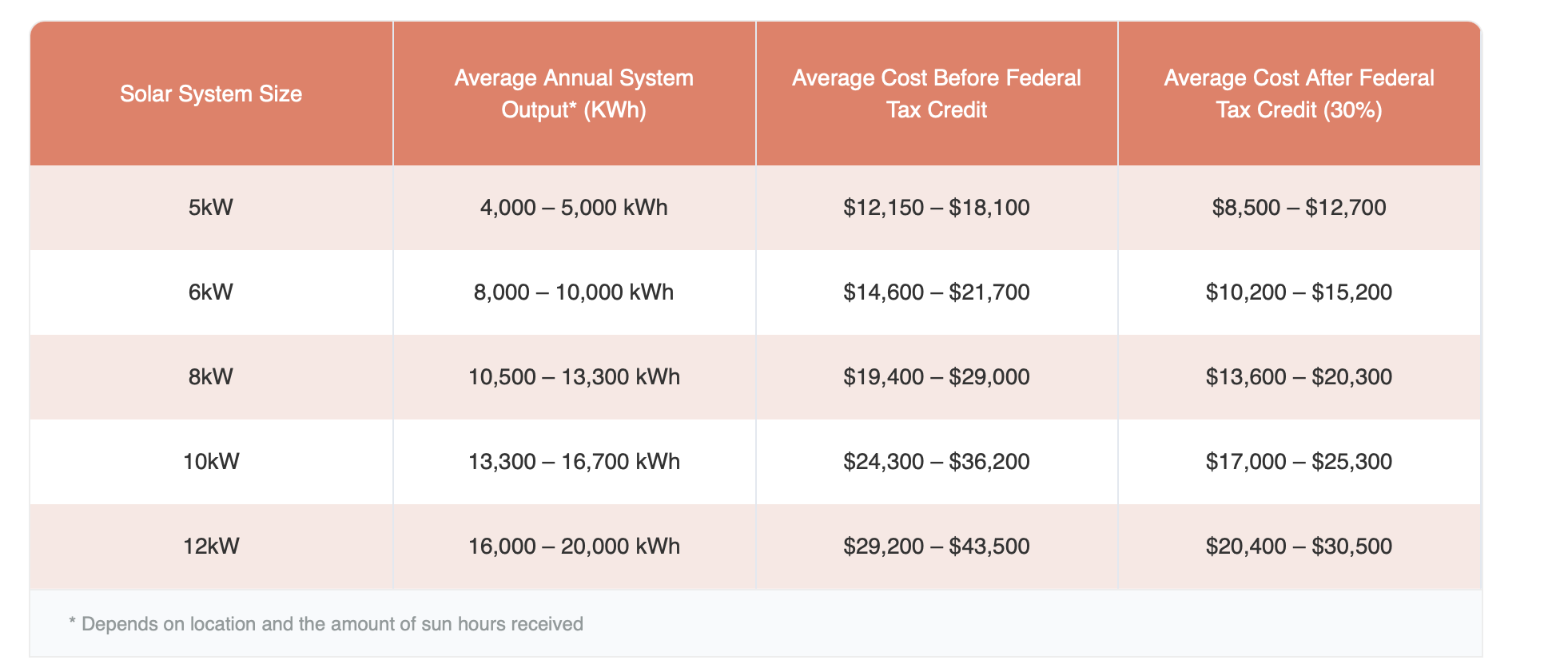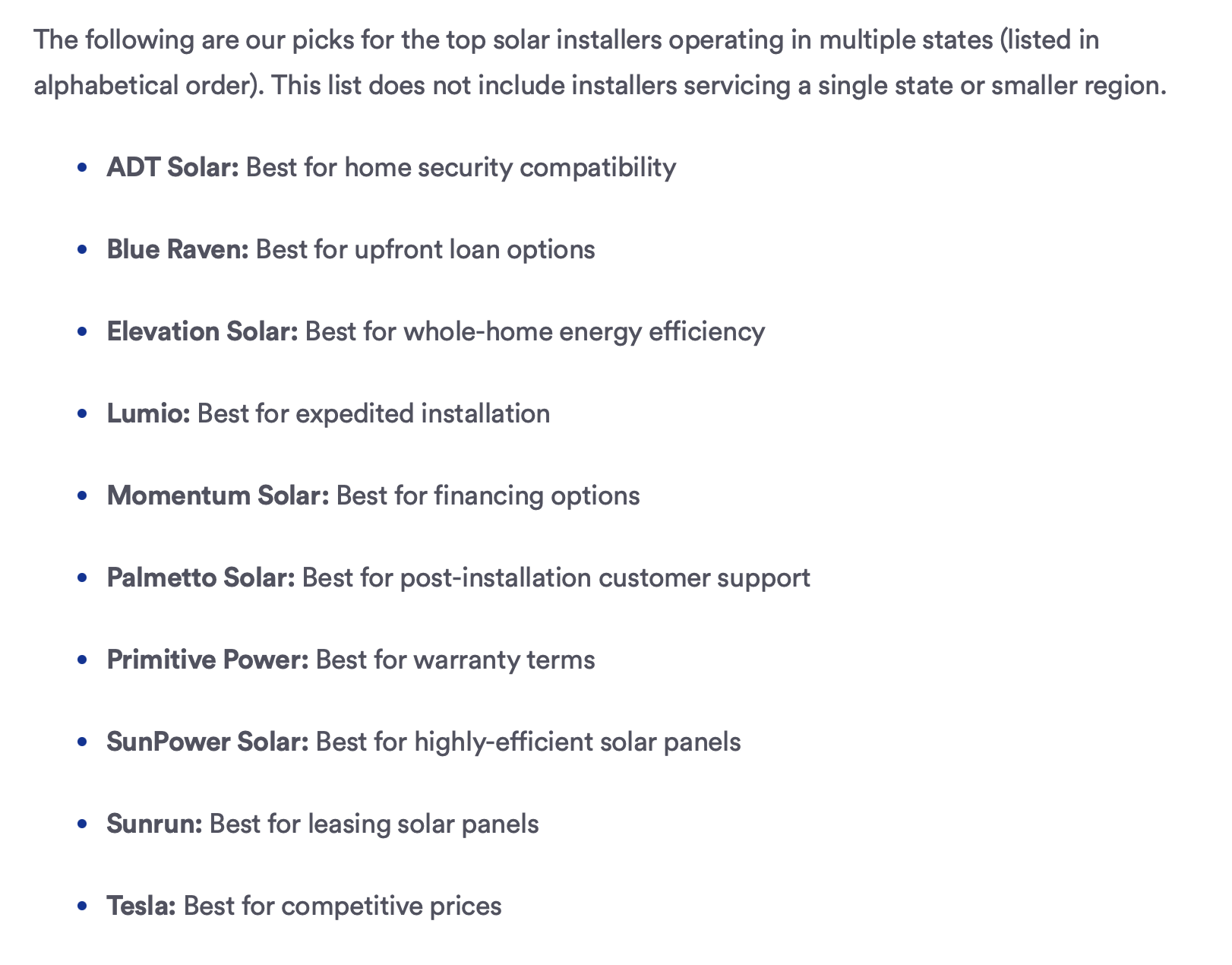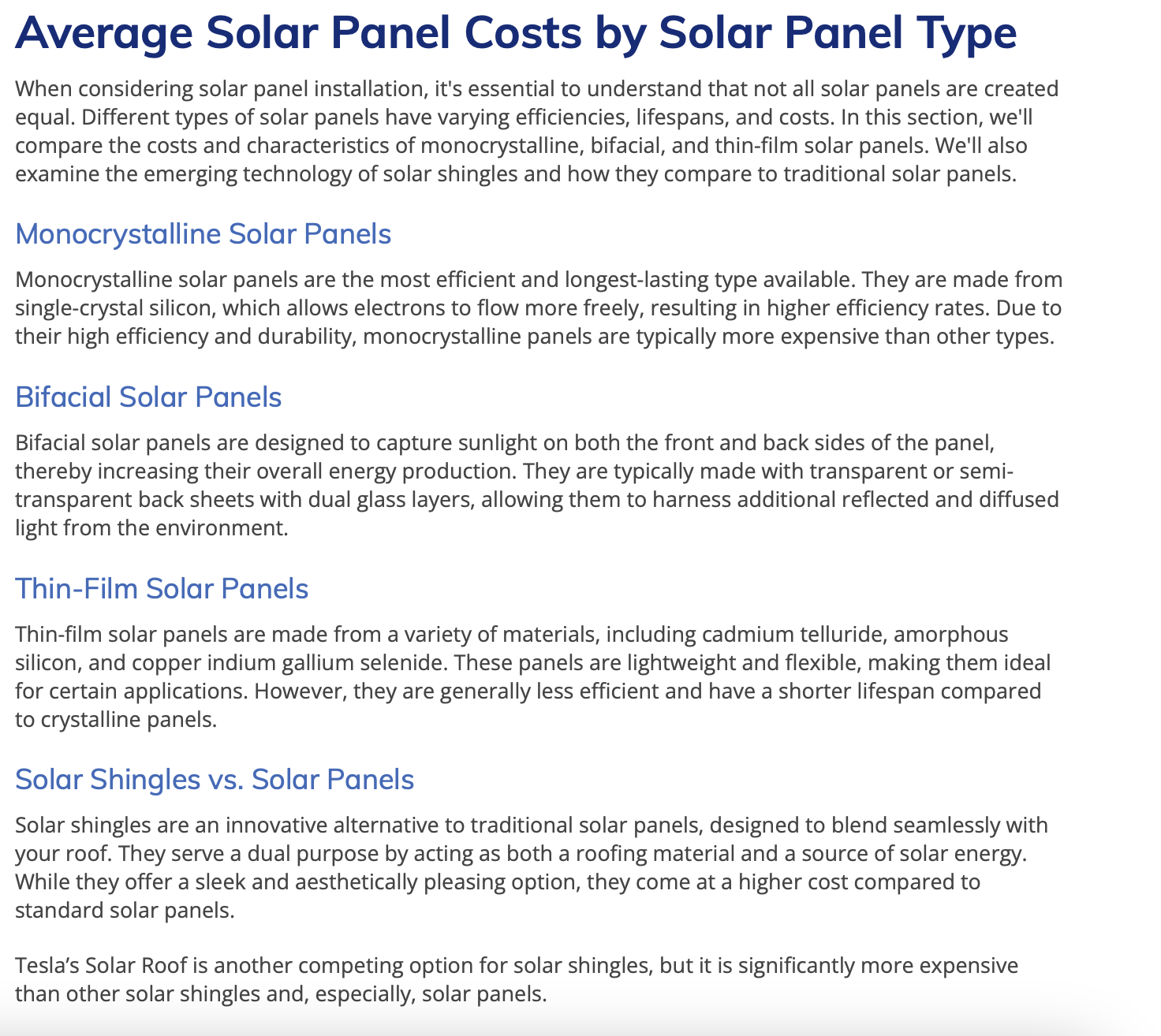Updated 1 year ago
Solar Bros and SEOs: How Search Engine Optimization is Hurting Home Solar
Written by
Catherine Lane

It’s no secret that the solar industry doesn’t have the best reputation. Since home solar started to take off in the 2010s, shady companies have taken advantage of homeowners to make a quick buck. To this day, the industry is still plagued with pushy salespeople, often dubbed “Solar Bros,” who will say just about anything to get you to sign a solar contract.
But, there’s another thing prospective solar buyers need to be on the lookout for, and it’s a little harder to spot than an overzealous Solar Bro: SEO websites. Largely run by people with no first-hand solar experience, the rise of these SEO-first websites is making it even more difficult for homeowners to access reliable information about home solar panels. While Google is making moves to weed out some of these websites, it still remains an issue for consumers and the solar industry at large.
What is SEO?
With a market size of over $68 billion in 2022, SEO is probably the biggest industry you’ve never heard of. SEO, or search engine optimization, is the process of creating website pages primarily for search engines. Simply put, it’s making content that Google likes.
Google measures how helpful a page is using a variety of metrics, including the page’s perceived quality, how much experience and expertise the writer and site have, the user experience on the page, and if the page meets searchers' needs.
Some websites are dedicated entirely to creating SEO content across different industries. The goal is to have their posts reach the top of search engine results pages (SERPs), then capture viewers and earn money through advertisements or lead generation. These companies tend to have large teams that are solely focused on making content that checks all of Google’s boxes.
Around 2022, we started seeing SEO sites, like Forbes, MarketWatch, and U.S. News & World Report, creeping into solar-related searches. This was a problem for SolarReviews – we also rely on Google search rankings to make money, so when these big players started dominating the SERPs, our own content got pushed down the page, and we saw our traffic dwindle.
What we didn’t know then was just how concerning this SERP shake-up would become. For the past few years, these SEO-first websites – sites with little to no relation to solar, whose writers and editors are tasked with creating equally authoritative articles about the best mattresses for side sleepers, the best vitamin C serums for your skincare routine, and how solar inverters work – have become the primary source of information about home solar.
This isn’t something that just impacts SolarReviews. It’s harming homeowners and their understanding of home solar.
How do search results impact consumer decisions and education on solar?
It might seem harmless at first, but the rise of SEOs can be detrimental to industries, as these sites provide half-baked knowledge yet outrank real industry experts.
The home solar industry is already plagued with misleading information. It’s a complex topic, it’s somewhat politicized, and the rise of “solar bros” using unethical solar sales practices makes it nearly impossible for homeowners to know what’s true and who to trust.
Now, throw SEO sites into the mix. Consumers try to do their due diligence, searching for information only to be met with websites whose primary goal isn’t to educate them, but to make money off them using any means necessary.
These major websites aren’t expert sources; they don’t hold a stake in the industry beyond earning passive income from it. But they influence the industry in real ways. Let’s take a look at some of SEO’s biggest impacts.
Consumers aren’t learning from those with firsthand knowledge
One big concern about SEO companies dominating solar SERPs is that consumers are learning about solar from people who don’t have firsthand experience with it. The first result on Google captures about 39.8% of search clicks, while the second and third results get just 18.7% and 10.2%, respectively.
We broke it down, and as of November 2024, SEO-first sites are seen by an estimated 537,800 searchers looking for solar and energy-related information each month. That’s a substantial number of people who will learn about solar from someone with little to no firsthand knowledge of the topic.
Solar isn’t something you can learn about from just anyone. In fact, we tell homeowners to be wary of what solar salespeople tell them. These SEO pages that appear among the top results are filled with confusing, misleading, and sometimes flat-out incorrect information.
Homeowners don’t know this, and frankly, neither does Google. Their pages are optimized to give the impression that they’re reliable and authoritative, but they simply don’t have the industry investment that provides a website true expertise.
For example, look at Forbes Home’s solar panel cost article. About five sets of “solar panel costs” are listed, with no clear connection between them. Which one are you supposed to believe?




Screenshots from Forbes.com (November 18, 2024)
They introduce the article with an average cost of $12,700 for a 6 kW system, which is one of the cheapest solar prices we’ve ever seen. They then go on to list another average of $18,604 with no associated system size or cost per watt, and then list prices that don’t include installation costs.
Imagine you’re a homeowner who got quotes for solar and you want to know if what the installer said was reasonable. If you read this article, do you feel confident that you could figure out if your quote was good, bad, or average? I’ve worked in solar for almost six years, and even I can’t quite get a handle on where all of these numbers come from.
This isn’t necessarily the fault of the writers. Very few of them focus exclusively on solar and energy, so they don’t understand some of the industry’s nuances and standards, like always including a system size or a cost per watt with total installation costs.
Big SEOs partner with the same solar installers
We also took a look at which solar installers SEOs feature on their pages. Among ten SEO-first websites, just 19 solar companies are advertised across all main solar company pages. There are over 10,000 solar businesses in the U.S. in 2024, meaning only 0.2% of solar companies are featured on these pages.
On SolarReviews, the average review score that real solar homeowners have given these 19 installers is 2.9 stars. That’s a wide divergence from the 4.5- and 5-star ratings the companies receive from SEO website writers.
Additionally, of the 19 solar installers featured, 47% are large companies that operate in 10 or more states. Large solar companies have had a rocky year, with four major closures or bankruptcies of large companies in 2024 alone, suggesting that these large-scale operations might not be best equipped to handle the intricacies of the home solar industry.
It’s worth noting that some of these SEO sites still advertise companies like SunPower, ADT Solar, and Lumio, which have all closed or filed for bankruptcy.

Screenshot from EcoWatch.com (November 18, 2024)

Screenshot from ArchitecturalDigest.com (November 19, 2024)

Screenshot from Bankrate.com (November 18, 2024)
This isn’t to say that all large solar companies are bad. In fact, some are great! But we tend to find small and mid-sized regional companies provide higher-quality customer service, and at the very least, they also deserve to be featured. And yet, SEO sites continue to push customers toward bigger installers, because it’s easier to profit from a few large partnerships than manage thousands of industry relationships.
The need to compete influences what everyone writes
The rise of content written by non-solar experts has lowered the quality of home solar-related content across the board. When trying to break through to the top of search results, you have to play by Google’s rules. If Google values content filled with unnecessary keywords and over-explained information, the rest of us have to follow suit to compete with SEO sites and stand a chance of ranking.
You’ve probably noticed this across your Google searches – you look something up and find the first few results almost identical, making it difficult to find any real insight. It’s frustrating for both you, as the searcher, and for us, as the writers. It’s almost impossible for our expertise to shine through because of how Google’s ranking algorithm values these sites, forcing us to include information that homeowners just don’t need to know.
There are tons of examples of this, but one of the most prominent (and the catalyst for writing this article) is the inclusion of “types of solar panels” in articles about solar panel cost. A lot of these SEO sites include a price breakdown of three solar panel types: monocrystalline, polycrystalline, and thin film solar panels.

Screenshot from MarketWatch.com (November 18, 2024)

Screenshot from ThisOldHouse.com (November 18, 2024)

Screenshot from Forbes.com (November 18, 2024)
This would be fine if it were something homeowners really needed to know. However, over 90% of the residential solar market share belongs to monocrystalline panels, and it would be rare for someone to receive a home solar quote for polycrystalline panels. It’s so rare that bringing up polycrystalline panels just adds noise to the conversation.
And yet, these big SEOs keep mentioning this cost distinction. Not only is it confusing for homeowners, but it makes Google think that listing these types of solar panels is an essential part of solar cost breakdowns. So, if you want your article to rank, you need to include it.
What would be more helpful is looking at types of solar cell technologies, like PERC, TopCon, or bifacial models. This is exactly what Paradise Energy Solutions did, which is a great way to still satisfy Google without regurgitating information that just isn’t helpful for most consumers. However, that article still ranks at the bottom of the SERP, behind pages like Forbes and This Old House, which include outdated information.

Screenshot from Paradise Energy Solutions (November 18, 2024)
Why this matters
Home solar doesn’t exactly have the best reputation. There have been countless stories of fly-by-night companies coming in to make a quick buck before closing up shop or solar salespeople making false promises to get people to sign a contract in one sitting. This doesn’t represent the whole industry, but it happens enough to scare consumers.
So, what do they do when a door-knocker comes, or their neighbor says to use them as a referral for solar? They head to the internet, and they’re met with the same issue: disingenuous websites looking to turn them into a sale. These websites don’t invest any real time in the industry; they don’t care about its reputation, if good solar policy gets passed, or get excited about the latest technology.
We believe that educated consumers are the best consumers. We don’t want you to go solar because you were strong-armed into a contract. It’s important for you to really understand the investment that solar is, how it works, and if it’s truly worthwhile for you. Funneling more people to large companies that will leave them high and dry isn’t something we, or any other company that is dedicated to the industry, are interested in.
While Google seems to be taking some action against some SEO sites, the repercussions of their dominance will still reverberate through SERPs across industries, including solar.
As with anything you see online, we advise all consumers to take what you read with a grain of salt, seek advice from true experts, and gather information from a variety of sources – especially before making a decision that will impact your finances and home for decades to come.
Catherine has been researching and reporting on the solar industry for five years and is the Written Content Manager at SolarReviews. She leads a dynamic team in producing informative and engaging content on residential solar to help homeowners make informed decisions about investing in solar panels. Catherine’s expertise has garnered attention from leading industry publications, with her work being featured in Solar Today Magazine and Solar ...
Learn more about Catherine Lane